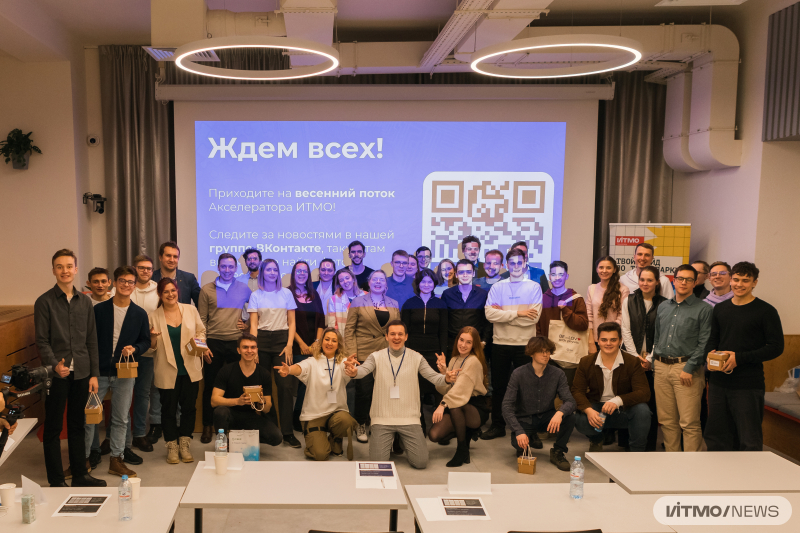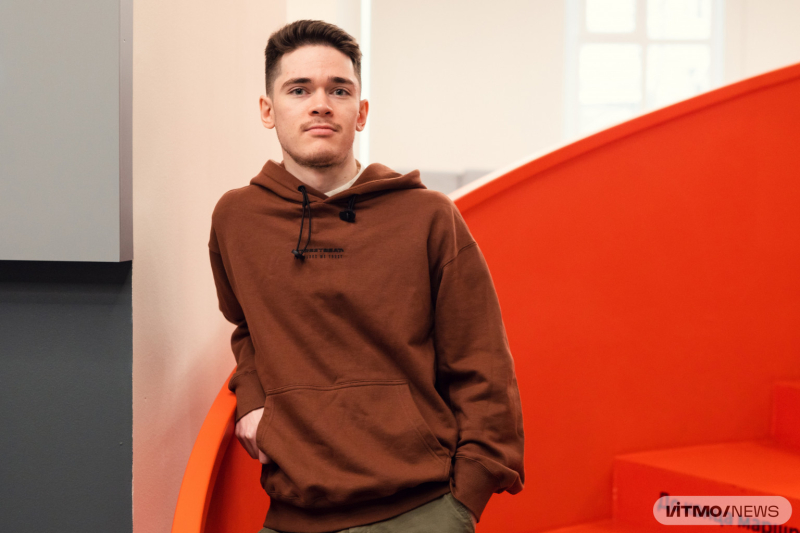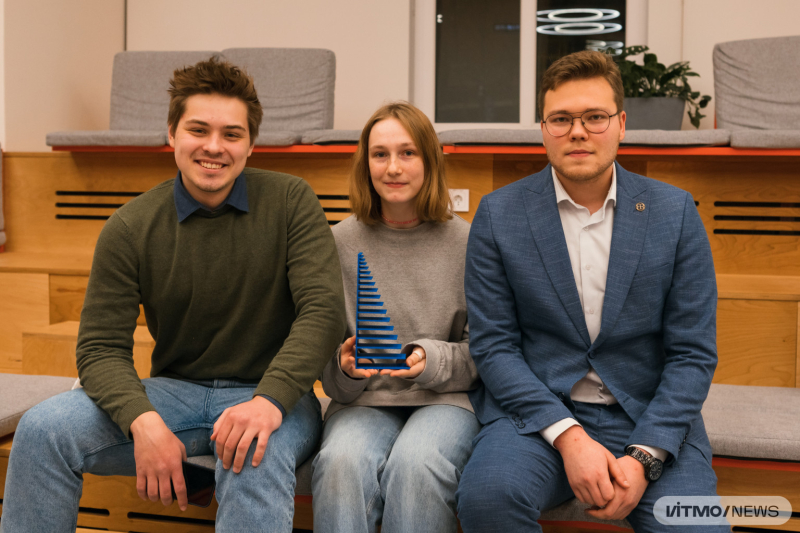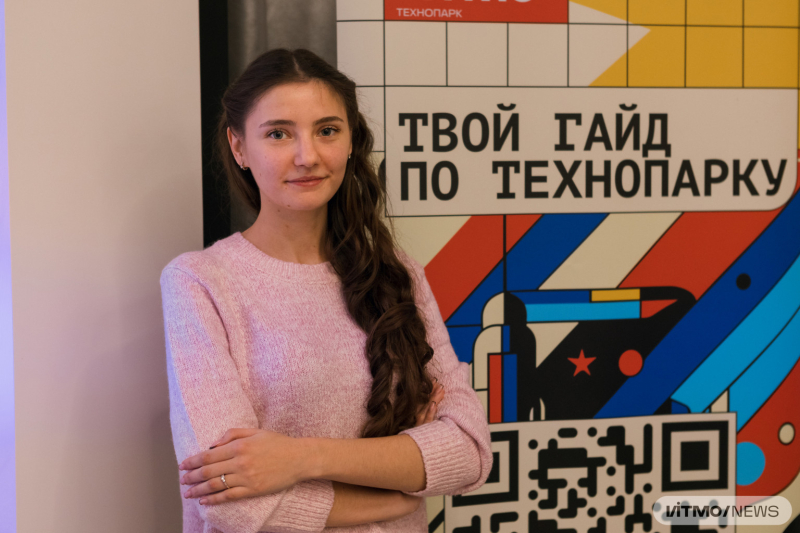ITMO Accelerator’s Demo Day Unveils AI Beauty Advisor, Text Encryptor, and Noise-Canceling Materials Innovations
Twice a year, around 60 student teams pitch their ideas at Demo Day after taking a three-month training course at ITMO Accelerator. For the second year running, the creators of the best startups are granted a 400,000-ruble grant and a free subscription to Yandex services from Yandex Cloud Boost. See below which projects won this year.

ITMO Accelerator is a program that assists young entrepreneurs in taking their ideas into first sales. It features business strategy and marketing lectures, mentor support, and networking with investors. Over 220 startup projects have gone through the ITMO Accelerator ever since its format change in 2020.
Like last year, the program is collaborating with Yandex Cloud Boost, which provides the accelerator’s winners with 400,000 rubles in financial help to launch and expand their businesses with the help of Yandex Cloud infrastructure and services. Furthermore, top developers enjoy discounts on Yandex services such as Toloka, Yandex Tracker, Yandex Plus, Yandex 360, and others.
In 2023, the ITMO Accelerator received over 530 applications, 60 of which were selected for the program – and 22 were presented at Demo Day.
This season’s winners became three startups. Additionally, Sberbank praised several projects, among which are mymeet.ai (a video call transcription tool), GrifOn (video analytics for customer retention), and Hololipss (a holographic security marking). The legal boutique Dostigatsiya granted one legal audit session to the projects MakeupChick (an AI beauty consultant) and IT Barbershop (an AI-based barbershop aggregator). The best developer, which will receive a grant of 400,000 rubles from Yandex Cloud Boost, will be revealed on December 20.
Read also:
Finding Support and Investments: A Guide for Student Startups
Learn more about this season’s winning projects in this video (in Russian):
Transcript and summary of online meetings
The third place was taken by the project mymeet.ai – a service that can transcribe any audio and video files in 58 languages. All you need to do is to either invite a special bot into your Google Meet or Zoom channel or load a recording of a past meeting into the system. The platform not only converts Russian audio to text with an accuracy of up to 96%, but can also divide the finished transcript into chapters, identify the speakers, and make a summary of the meeting. The service is made primarily for HR staff, product and project managers, researchers, and team leads.
The service utilizes Whisper (a speech recognition model), ChatGPT, and a number of its own neural networks. The program is available on a free plan (180 minutes) and a subscription; as of now, the service has approximately 50 paying users.
“At the accelerator, we learned to develop and test hypotheses, build marketing plans and strategies, as well as pitch and present our ideas. We hope to expand soon and team up with other domestic platforms like Yandex.Telemost and SberJazz. We also want to introduce a quote feature and switch from ChatGPT to our own language model,” shared Fedor Zhilkin, the head of the project and an ITMO graduate.

Fedor Zhilkin. Photo by Dmitry Grigoryev / ITMO.NEWS
Noise-canceling elements with built-in air supply
The second place went to MetaTech, a project that develops noise-canceling panels that provide silence while letting in air.
The product combines two technologies: acoustic metamaterials, which absorb noise thanks to their periodical structure, and sonic black holes (the phenomenon of structures that don’t allow soundwaves to escape once they are inside). Compared to similar products, MetaTech is five times more effective at canceling noise, is twice as cheap, and can be manufactured in any size or shape.
“At the Accelerator, we learned about CustDev: we pinpointed the target segments for our product, surveyed the audience, and learned to work with industrial partners, conduct negotiations, and deal with the legal aspects. We also established a network of contacts. In the future, we plan to promote our products among builders and riggers as elements of air conditioning devices, as well as sell them for use in private and industrial air conditioning,” explains Yaroslav Muravyev, one of the project’s creators and a student at the Faculty of Physics.

The team of project MetaTech (left to right): Yaroslav Muravyev, Aleksandra Zheleznova, and Dmitry Pozdeev. Photo by Dmitry Grigoryev / ITMO.NEWS
AI consultant for the world of beauty products
The first place went to the project MakeupChick – an AI-based service that picks decorative beauty products based on the price, quality, and the user’s skin type. It works like this: after the user takes a survey, the software analyzes their responses and recommends a suite of beauty products. According to the creators, there is no such service being offered by any competitor: all similar products only work with care products, not with decorative ones, and not everyone can afford a personal stylist (one appointment costs, on average, around 3,500 rubles).
The authors have already conducted 30 in-depth interviews, identified their target audience, and confirmed their hypothesis that approximately 30% of the website’s users are willing to purchase their recommended products via the site. It is through these purchases that the project will make its profit – per the business model, the team will receive 10% from each sale.
“When our studies began, we had workshops where we’d come up with projects – that’s where MakeupChick originated. The project seemed appealing not just to us, but also to the jury members, who suggested that we join the Accelerator and take it further. The service is indeed relevant: many young women use beauty products, but it’s often difficult to tell what works for you and what doesn’t. We’ve already developed an MVP and made our first sales. Our plan is to enter the market with the help of social media ads, content marketing, and demos and presentations,” comments Alena Karaseva, a member of the project and a student at the Faculty of Technological Management and Innovations.

Alena Karaseva. Photo by Dmitry Grigoryev / ITMO.NEWS


